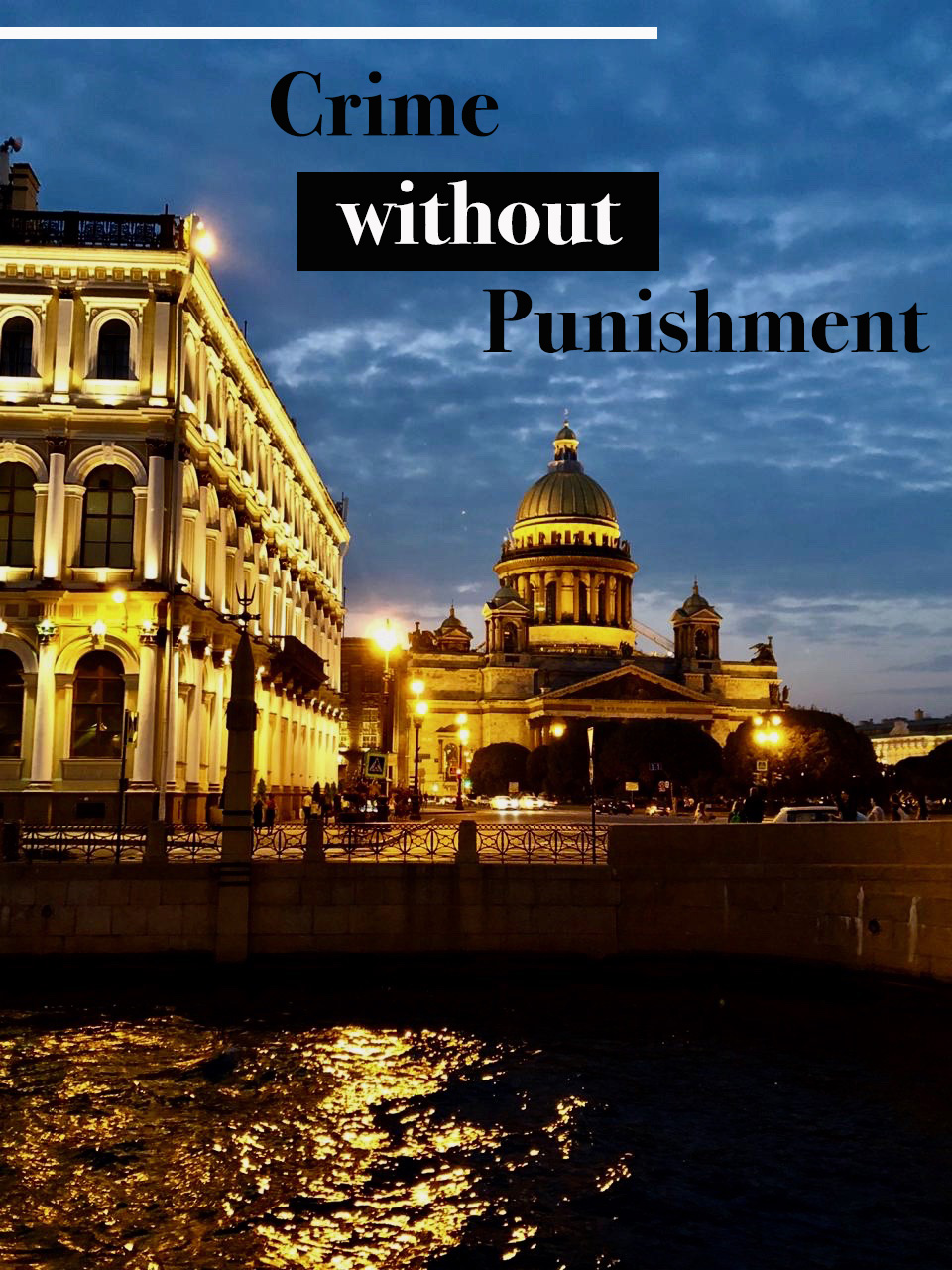[Written by Natalia Melenteva]
[Image by Anastasija Svarevska]
“I like them to talk nonsense. That’s man’s one privilege over all creation. Through error you come to the truth! I am a man because I err!”
“What do you think, would not one tiny crime be wiped out by thousands of good deeds?”
Crime and Punishment, Fyodor Dostoyevsky, 1866
What do Fyodor Dostoyevsky’s Crime and Punishment and the series Westworld have in common? At first glance, nothing, except for murder. I will not spoil much if I say that the focus of the novel is crime and subsequent punishment, just as Westworld deals with crime without punishment.
Dostoyevsky’s Crime and Punishment deals with the issue of morally justifiable killing. The story revolves around a poor former student in St. Petersburg, Raskolnikov, who tries to solve his financial issues by murdering a wealthy pawnshop owner: he needs the money to support himself and his family. Considering his circumstances, murder appears to be the solution to all of his problems. Raskolnikov believes that he will be able to deal with the consequences of the murder, but his guilt builds over the course of the novel, making him physically ill. His punishment is not inflicted on him by the law; rather, his guilt alienates him from the rest of society and he is unable to achieve anything he had planned with the stolen money. It is, in the end, of his own volition that he confesses to his crime.
In contrast, HBO’s Westworld: a show about a park full of androids. In it, artificial intelligence (A.I.) is advanced enough to create a virtual world in which rape and murder are permissible acts – crimes for which there is no punishment. These are acts committed for entertainment, rather than necessity.
In Westworld, Raskolnikov’s guilt would not have translated into reality – although, neither would the money he stole – with the lesson being that real life demands real consequences. Wealth is a key point of Westworld: it compensates for consciousness and absolves all responsibility. But that is not unique to the virtual world: in our very real world, the rich can quite literally get away with murder – if their conscience will allow to do so.
Before the murder, Raskolnikov overhears a conversation that his victim does not deserve to live, and her money would help others, although murder is murder and there seems to be an inherent negative moral quality to this action. Still, dismissing his reasons for murder would also mean dismissing the conditions of the society he was living in. It is not enough to pardon him, but it is a beginning in order to understand just how different his circumstances are from those in Westworld, where crime is nothing but a pastime.
The idea of murder carries as much importance as the act itself. The realness of the victim determines the severity of the crime, but it is ultimately the willingness to commit the crime that unites Raskolnikov and the people of Westworld. For Raskolnikov, the justifiable killing suddenly became unjustifiable once he realises the full impact of his actions. He finds his own truth by committing this grave mistake.
There is no crime without punishment, even if punishment is not immediate or at the hands of the law. Dostoyevsky writes on the intricacies of human nature and the weight of guilt, while Westworld considers the possibilities of robots becoming self-aware, of becoming more human, and what it would be for them to enter, as humans, a world not founded on positive moral examples. The question of what it means to be human, and of what constitutes crime, unites these two very unlikely works.
Raskolnikov can only begin a new life once he receives punishment by law. It, in a way, concludes the emotional suffering he has experienced throughout the novel, with all of the people close to him – and himself – now settled in life, far from the desperate situation he found himself in at the beginning of the story. The murder makes a better man out of him. Dostoyevsky ends his novel: “He did not know the new life would not be given him for nothing, that he would have to pay dearly for it, that it would cost him great striving, great suffering. […] That might be the subject of a new story, but our present story has ended”.
It is easier to trace the conclusion of a story in the novel than it is in Westworld. Because, while Raskolnikov still experiences guilt – and will do so until the end of his days – he has accepted his just punishment, and he evolved as a person because of it. Now he has a chance at a new life, married and in love. Westworld does not offer a similar distinction, as the current story is not yet complete, and A.I. has not fully shown what it is capable of, and the individuals committing the crimes have not yet experienced punishment.
The development of A.I. is a part of our lives, one that is far from concluded. So in the meantime, we can watch Westworld and, of course, read a little Dostoyevsky.

